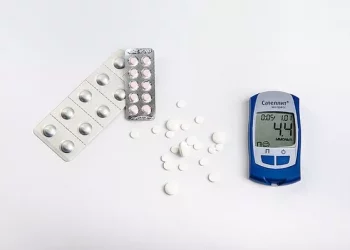In the ongoing pursuit of managing diabetes, individuals are continually exploring dietary habits, food choices, and drinks that can either help regulate blood sugar or alleviate symptoms. One drink that often emerges in discussions about diabetes management is green tea. Known for its health benefits, including its antioxidant properties and potential to improve metabolism, green tea has gained popularity not only for its potential to support general wellness but also for its potential benefits in managing chronic conditions like diabetes.
Green tea has become a staple in many health-conscious diets, and with the growing trend toward low-calorie or diet beverages, diet green tea has also gained traction. But is diet green tea truly beneficial for people with diabetes? Can it aid in managing blood sugar levels, or does it carry any risks? In this article, we’ll explore the scientific evidence surrounding diet green tea and its impact on diabetes management, its potential benefits and risks, and how it fits into a balanced, diabetes-friendly diet.
Understanding Diabetes and Diet Considerations
Before diving into the potential benefits of diet green tea, it’s important to understand the core principles of diabetes and how diet plays a crucial role in its management.
Diabetes, both type 1 and type 2, is characterized by an imbalance in the body’s ability to regulate blood sugar (glucose). In type 1 diabetes, the body’s immune system attacks and destroys the insulin-producing cells in the pancreas. In type 2 diabetes, the body either becomes resistant to insulin or does not produce enough insulin to regulate blood sugar levels effectively.
Managing diabetes involves monitoring and controlling blood glucose levels to prevent spikes and maintain a healthy balance. This typically includes lifestyle changes such as regular physical activity, weight management, medication, and, crucially, dietary adjustments. The goal is to adopt a diet that helps maintain blood sugar levels within a healthy range while also addressing other factors such as heart health, weight control, and overall wellness.
Certain foods and drinks can have a significant impact on blood sugar. The focus is often on low-glycemic foods that do not cause rapid spikes in blood sugar. In this context, beverages like diet green tea are of particular interest due to their potential impact on blood sugar regulation and other metabolic processes.
What Is Diet Green Tea?
Diet green tea is a variation of traditional green tea that is typically marketed as a low-calorie or calorie-free beverage. In addition to its basic ingredients of green tea leaves and water, diet green tea may contain artificial sweeteners, flavorings, or additional nutrients like vitamins and minerals. The key difference between regular green tea and diet green tea lies in the presence of sweeteners. While regular green tea may have a mild, natural bitterness due to its polyphenols, diet green tea often contains artificial sweeteners like aspartame, sucralose, or stevia to reduce the calorie count and make the drink more palatable to those seeking low-calorie alternatives.
It’s worth noting that diet green tea may come in various forms, including bottled beverages, tea bags, or powdered forms that dissolve in water. While diet green tea provides a convenient, ready-to-drink alternative to regular green tea, it’s essential to examine the ingredients carefully. Some diet green teas contain artificial sweeteners that may have their own health considerations, particularly for individuals with diabetes.
The Nutritional and Phytochemical Composition of Green Tea
To understand the potential health benefits of green tea, including diet green tea, we must first look at the components that make it a health-promoting beverage.
Catechins: Green tea is rich in catechins, a type of antioxidant flavonoid that is believed to contribute to the drink’s health benefits. The most abundant catechins in green tea are epigallocatechin gallate (EGCG), epicatechin (EC), and epicatechin gallate (ECG). EGCG, in particular, has been shown to have numerous health benefits, including anti-inflammatory, anti-cancer, and heart-protective effects. Catechins also play a role in improving insulin sensitivity, which is especially important for individuals with diabetes.
Polyphenols: These compounds have antioxidant properties that help reduce oxidative stress in the body, which can contribute to the development of chronic conditions like diabetes. Polyphenols also help regulate glucose metabolism and improve insulin sensitivity, which is beneficial for managing blood sugar levels.
Caffeine: Green tea contains caffeine, although in smaller amounts than coffee. Caffeine can have a mild stimulating effect on the central nervous system and may contribute to metabolism. However, excessive caffeine consumption should be monitored in individuals with diabetes, as it can lead to dehydration and other adverse effects if consumed in large quantities.
L-theanine: This amino acid is found in green tea and is known for its calming effects. It counterbalances the stimulating effects of caffeine, providing a smoother energy boost without the jitteriness that can sometimes accompany coffee or other caffeinated beverages.
Chlorophyll and Vitamins: Green tea also contains trace amounts of vitamins such as vitamin C, vitamin A, and several B vitamins, as well as minerals like manganese, zinc, and magnesium. These nutrients contribute to the overall health benefits of green tea and may help support the immune system, improve skin health, and promote overall vitality.
Green Tea and Blood Sugar Regulation
There has been considerable interest in green tea’s potential role in managing blood sugar levels, particularly for individuals with type 2 diabetes. Several studies have examined the effects of green tea on insulin sensitivity, glucose metabolism, and long-term blood sugar control. Here’s a closer look at how green tea may help with blood sugar regulation:
Improving Insulin Sensitivity: One of the key challenges in managing type 2 diabetes is insulin resistance, a condition in which the body’s cells do not respond effectively to insulin. Studies have shown that green tea catechins, particularly EGCG, can improve insulin sensitivity. This means that the body can more effectively use the insulin it produces to regulate blood sugar levels. Some studies have indicated that regular consumption of green tea may help reduce insulin resistance, which could ultimately aid in blood sugar control.
Lowering Blood Sugar Levels: Research suggests that the antioxidants in green tea can help lower blood glucose levels, particularly after meals. By inhibiting enzymes that break down carbohydrates, green tea may reduce the absorption of glucose from the digestive tract, preventing blood sugar spikes. This effect is particularly important for individuals with diabetes who need to monitor their post-meal blood sugar levels carefully.
Reducing Inflammation: Chronic inflammation is common in individuals with diabetes and can contribute to insulin resistance and the development of complications. Green tea’s anti-inflammatory properties, largely attributed to its polyphenols, can help reduce this inflammation and improve overall metabolic function.
Supporting Weight Loss: Maintaining a healthy weight is crucial for managing type 2 diabetes. Excess weight, particularly abdominal fat, is associated with insulin resistance and poor blood sugar control. Some studies suggest that green tea may help support weight loss by increasing fat oxidation and promoting fat metabolism. This could be particularly beneficial for individuals with diabetes who are working to reduce body fat and improve insulin sensitivity.
Is Diet Green Tea Beneficial for Diabetes?
Now that we’ve explored the benefits of green tea in general, the question arises: Is diet green tea specifically good for people with diabetes? The answer depends on several factors, including the ingredients used in diet green tea and the individual’s response to the beverage.
Low-Calorie Option: One of the primary benefits of diet green tea is that it is typically low in calories. For individuals with diabetes, managing calorie intake is crucial for maintaining a healthy weight. Since diet green tea contains little to no sugar or calories, it can be an excellent alternative to sugary beverages that can cause blood sugar spikes. By replacing sugary sodas or sweetened beverages with diet green tea, individuals with diabetes can reduce their overall calorie consumption while still enjoying a flavorful drink.
Artificial Sweeteners: While diet green tea is free from added sugars, it often contains artificial sweeteners such as aspartame, sucralose, or stevia. The effects of artificial sweeteners on blood sugar control and overall health are still a topic of debate. Some studies suggest that certain artificial sweeteners may not significantly impact blood sugar levels, while others indicate that they may have a negative effect on insulin sensitivity. For individuals with diabetes, it’s essential to be cautious when consuming products with artificial sweeteners and monitor how these sweeteners affect their blood sugar levels.
No Excessive Added Sugars: One of the most significant advantages of diet green tea is the absence of added sugars. Sugary drinks are notorious for causing blood sugar spikes, which can be harmful for people with diabetes. Diet green tea offers a safe, sugar-free alternative that doesn’t have the same negative impact on blood glucose levels.
Flavor Without the Calories: Diet green tea offers the flavor and antioxidant benefits of traditional green tea without the added calories. This can make it an appealing choice for individuals who want to enjoy the benefits of green tea but need to watch their calorie intake.
Potential Risks and Considerations
While diet green tea offers many potential benefits for individuals with diabetes, there are some important considerations to keep in mind:
Artificial Sweeteners: Some individuals may be sensitive to artificial sweeteners, which can cause gastrointestinal issues or cravings for sweet foods. Additionally, the long-term effects of consuming artificial sweeteners are still under investigation, so moderation is key.
Caffeine Sensitivity: While diet green tea contains less caffeine than coffee, it still has a mild stimulating effect. People who are sensitive to caffeine may experience side effects such as jitteriness, insomnia, or digestive issues. Individuals with diabetes should monitor their caffeine intake and avoid excessive consumption.
Interaction with Medications: As with any dietary change, it’s essential to consult with a healthcare provider before incorporating diet green tea into your routine, especially if you are on medications for diabetes or other conditions. Green tea can interact with certain medications, including blood thinners, and may affect their efficacy.
Conclusion
Diet green tea can be a beneficial addition to a diabetes management plan when consumed in moderation. Its low-calorie content, antioxidant properties, and potential to improve insulin sensitivity make it a suitable alternative to sugary drinks that can cause blood sugar spikes. However, it’s important to be mindful of the ingredients used in diet green tea, particularly artificial sweeteners, and to monitor how the beverage affects blood sugar levels. As with any dietary change, it’s advisable to consult with a healthcare provider to ensure that diet green tea fits within a personalized, balanced diet plan for diabetes management.
Related topics:
What Foods Are High in Fiber for Diabetics?






















